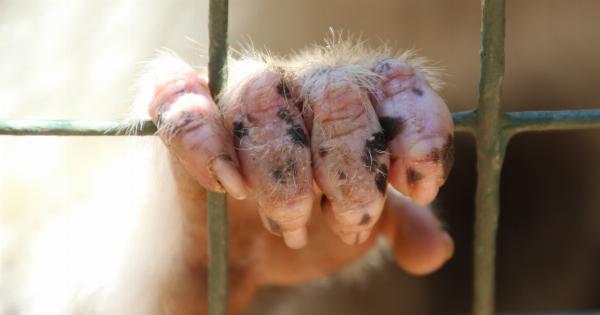Stress is an inevitable part of human existence. Whether it’s caused by work pressures, relationship issues, financial burdens, or other life challenges, stress can take a toll on our well-being.
In many cases, stress can bring out both the best and the worst in people. While some individuals may rise above it and demonstrate resilience and kindness, for others, stressful situations can reveal a darker side.
This article aims to explore the correlation between stressful situations and the emergence of wickedness in men, shedding light on the underlying factors that contribute to such behavior.
The Dark Side Unleashed: Examples of Wickedness during Stress
Throughout history, there have been numerous instances where stressful situations have led individuals to exhibit wicked behavior. These examples serve as vivid reminders of how stressors can sometimes bring out the worst in men.
1. The Stanford Prison Experiment
In 1971, Stanford University conducted a notorious social psychology experiment to study the psychological effects of perceived power.
The study involved randomly assigning participants to the roles of prisoners and prison guards in a simulated prison environment. The experiment, initially planned to last for two weeks, had to be terminated after only six days due to the alarming sadistic behavior displayed by the guards, causing immense distress and wickedness towards the prisoners.
2. The Torture at Abu Ghraib Prison
During the war in Iraq, the infamous photographs depicting the torture and abuse of detainees at Abu Ghraib prison shocked the international community.
Many argue that the stressful circumstances experienced by the soldiers in a hostile environment contributed to their wicked actions. The dehumanization and mistreatment of prisoners can be seen as a manifestation of the dark side of human nature accentuated under extreme stress.
3. Mob Mentality and Violence
Large-scale stressful events can trigger mob mentality, causing individuals to behave in ways they would never engage in under normal circumstances.
Riots, protests, and even sporting events can illustrate how stress and a sense of collective identity can lead men to engage in various forms of wickedness, including violence, looting, and vandalism.
Understanding the Factors: Psychology Behind Wickedness during Stress
The emergence of wicked behavior during stressful situations can be attributed to a combination of psychological factors. It’s crucial to analyze these underlying aspects to gain a deeper understanding of the phenomenon.
1. The Role of Cognitive Dissonance
Stress can create cognitive dissonance, a state of mental discomfort caused by holding contradictory beliefs or values. When individuals are confronted with stressors that challenge their moral compass, they may experience inner conflicts.
To alleviate this discomfort, some may resort to wicked actions that align with the stress-induced mindset.
2. The Influence of Social Norms
In high-stress situations, social norms can become blurred or weakened, thereby allowing individuals to engage in actions they would typically consider unethical or morally wrong.
The desire to fit into a certain group or maintain social cohesion can overpower one’s ethical considerations, leading to wicked behavior.
3. The Impact of Deindividuation
In some stressful situations, individuals may feel a diminished sense of self-awareness and personal responsibility due to deindividuation.
When people perceive themselves as part of a crowd or mob, they may lose their individuality and sense of accountability. This sense of anonymity can embolden wicked behavior, as the fear of personal consequences is significantly reduced.
4. The Influence of Learned Behavior
The way individuals respond to stress is deeply influenced by their upbringing, environment, and past experiences.
If an individual has witnessed or experienced wicked behavior in similar stressful situations in the past, they may be more likely to replicate such behavior as a learned response. The engrained belief that wickedness is an effective coping mechanism can lead individuals to exhibit these actions during future stressful events.
Breaking the Cycle: Coping Strategies and Prevention
While it may be disheartening to acknowledge the potential for wickedness in men during stressful circumstances, understanding the underlying factors can help identify strategies to prevent or mitigate the negative impact.
1. Building Emotional Resilience
Emotional resilience plays a crucial role in how individuals respond to stress.
By developing effective coping mechanisms, such as mindfulness practices, therapy, or engaging in stress-relieving activities, individuals can build resilience and reduce the likelihood of harming others during tense situations.
2. Encouraging Empathy and Compassion
Promoting empathy and compassion can counteract the emergence of wickedness in stressful environments.
Encouraging individuals to consider the feelings and experiences of others, even during challenging times, can foster a sense of connectedness and discourage harmful behavior.
3. Strengthening Ethical Frameworks
An emphasis on ethical values and principles is essential for combating wickedness during stressful situations.
Education, training, and the establishment of clear ethical guidelines within organizations and institutions can help individuals uphold their moral standards, even when faced with immense pressure.
4. Creating Supportive Environments
Supportive environments that prioritize mental health and well-being can greatly reduce the likelihood of wicked behavior during stress.
Creating avenues for open communication, providing resources for stress management, and fostering a culture of understanding and solidarity can contribute to healthier responses to stressors.
The Complexity of Human Behavior
It is important to acknowledge that not all individuals respond to stress in wicked ways. While some individuals may succumb to the pressure, others may exhibit remarkable resilience and integrity.
Human behavior is a complex interplay of various factors, including upbringing, personality traits, past experiences, and societal influences. Stressful situations can unveil different aspects of our character, and while wickedness may emerge in some, it is crucial to remember that kindness and compassion can flourish as well.




























